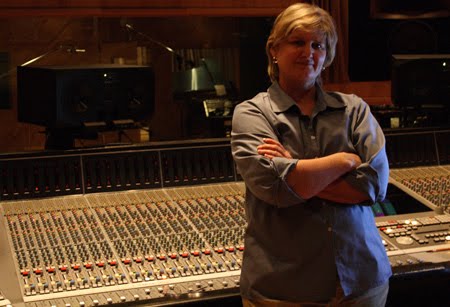(reprint from the Songwriters Connection E-Tip. songwritersconnection.com to sign up)
By Kim Copeland
We are all in a different place on our songwriting journey. Some of us are great musicians, some beginners. Some of us are great singers, some can’t carry a tune. Some of us have natural rhythm, some struggle to keep a steady tempo. Some of us are poets while others of us ramble aimlessly, confusing the listener as we go.
The beauty of this ever shrinking world we live in is that you are never far away from someone whose strengths compliment your weaknesses. As you identify and own your strengths and weaknesses you can, and should, seek out fellow creative beings that can fill in the gaps for you and improve your chances of songwriting success and fulfillment. In doing so, you will become more self sufficient and better able to take responsibility for your songs.
“Songwriting” means something different to each of us. We all use the gifts we have and try to find some basic understanding of those we aren’t blessed with in hopes of improving our songwriting experience. This process can be fulfilling or frustrating; often times both. It should help to know that you do not have to be a great musician or singer to be a great songwriter. If you can feel or hear your idea, you can find a way to express it and present it to the world. It isn’t hard to cast a creative team to fill the roles you can’t.
Here are some key elements to creating a good, commercial song and where the creative responsibility lies for each.
1. Rhyme scheme - Songwriter
2 . Song Structure – Songwriter/Producer (You should have the basic structure down, but be flexible in case musicians or producer come up with some creative modifications in the studio that you had not thought of.)
3. Attitude – Songwriter/Producer (Production should enhance it, but you should know what attitude you are going for before you get into the studio. If you cannot express it, use other commercial songs as examples to illustrate this to musicians, vocalists, producer, etc.)
4. Emotion – Songwriter/Producer (Though production should enhance and showcase the emotional impact of the song, it is the writer’s responsibility to create the emotion in the lyric and melody.)
5. Range – Songwriter/Producer (You should have the range of the melody written to showcase the lyrical emotion. The producer and/or singer may embellish it somewhat to match the musical track.)
6. Phrasing – Producer/Songwriter (Though you should have the melodic and lyrical phrasing written into your song, you should also give the musicians, producer and vocalist some latitude with them to allow the song to evolve in the creative process of recording it.)
7. Melody ad lib – Producer/Vocalist/Songwriter (Whether you are singing your own demo or hiring a professional demo singer, be open to exploring ad libs that can enhance the emotional impact of your song.)
8. Instrumentation (chord voicings) – Producer/Musicians/ Songwriter (You may have chord voicings that work great with one guitar, but not with a full band. Sustained chords, sevenths, etc should be used as coloring. Trust the producer to find the compromise that brings out the flavoring you like without letting it interfere with the vocal and musical theme of your song.)
9. Musical signature lick, groove, arrangement, vocal harmonies and background vocals, vocal and musical phrasing – Producer/Songwriter/Musicians (You may have a signature lick written into your song, If so, let the producer build it into the full production to fit the groove and attitude of your song. If you have ideas on harmony and background vocals, that is great. But if you don’t hear these things, the producer will. This is not something that you have to provide as the songwriter. All of this falls under the umbrella of production. Your producer should work with you to incorporate your ideas into the big picture in the way that best serves your song and your goals for the recording.)
Whether or not you are a great musician, singer, or linguist, your responsibility as a songwriter is to present your idea in a clear way that the audience can easily follow and be drawn into, and to move the listener emotionally. Few of us can do it all. Focus on the elements that you can do well and seek out others to help with the rest. By learning where to put your energy to good use and where not to waste it, you can relax and focus and make better use of your creative time and energy.
Wednesday, April 7, 2010
Creative Responsibility
Labels:
artist,
cd,
recording,
recording music,
songs,
songwriter,
songwriters,
songwriting,
studio
Subscribe to:
Posts (Atom)

